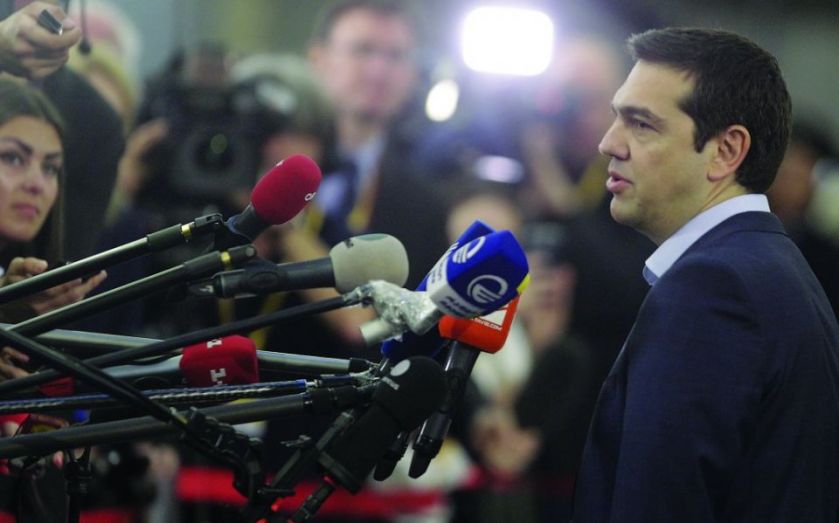Leaders in late night Greek debt talks fail to break deal deadlock
German Chancellor Angela Merkel and other high-ranking officials met in Berlin late last night to discuss the prospect of a deal for Greece.
The country faces a slew of hefty payments in the coming weeks and a real prospect of defaulting on its debt if it is unable to secure a reforms-for-cash deal with creditors that would unlock €7.2bn (£5.2bn).
Joining Merkel was French Prime Minister Francois Hollande, European Commission (EC) President Jean-Claude Juncker, European Central Bank (ECB) chief Mario Draghi and International Monetary Fund (IMF) boss Christine Lagarde.
However, hopes for a major breakthrough were dented when a German government spokesperson said the officials had only agreed there needed to be “intensive work” on Greece.
The meeting spawned from a separate planned meeting between Merkel and other EU leaders to discuss how to promote investment in Europe. But it was later discreetly joined by Draghi and Lagarde.
According to reports in Greek media, Prime Minister Alexis Tsipras and other cabinet ministers awaited news from Berlin in Greece.
Greek officials have previously told City A.M. that the country’s creditors have taken different approaches to negotiations, and that this has hindered progress. They said the IMF needed to come more in line with the EC and ECB with regard to its demands on Greece’s reforms.
Meanwhile, an EC spokeswoman said yesterday that Greece’s creditors were “not in the business of setting deadlines”, which reduces the risk of Greece being offered any kind of ultimatum.
Greece is due to pay €300m (£216m) to the IMF on Friday, with uncertainty surrounding its ability to meet the payment. If Athens successfully pays up, it then faces a €340m payment on 12 June, a €570m bill on 16 June and a €300m payment on 19 June.
Goldman Sachs yesterday warned that the country is likely to see another set of elections soon.
Its chief European economist Huw Pill said the current deadlock demonstrates problems with the Syriza government’s election promises.
“The platform on which the current Greek government was elected is simply infeasible: the Greeks cannot “have their cake and eat it”, retaining the euro but not implementing adjustment,” he said.
“A hard choice has to be made between a euro exit or adjustment to remain part of the single currency.”
“Making that choice entails finding a new mandate to govern. This will have to be sought from the electorate, implying a new government, new elections or a referendum,” Pill said.
He added that there may need to be a default or a block on bank deposits before a deal could be reached.
Last night’s seemingly spontaneous crisis summit comes after Tsipras penned an extended diatribe against the country’s creditors in French newspaper Le Monde on Sunday.
He said they had misrepresented the way his teams had negotiated, rejecting claims that Greek negotiators had not presented detailed reforms, and labelled their demands as “absurd”.
But Tsipras’ message on progress did not seem to gain much traction in Brussels, where an EC spokeswoman last night said that “what matters more than op-eds are concrete reform proposals”.
